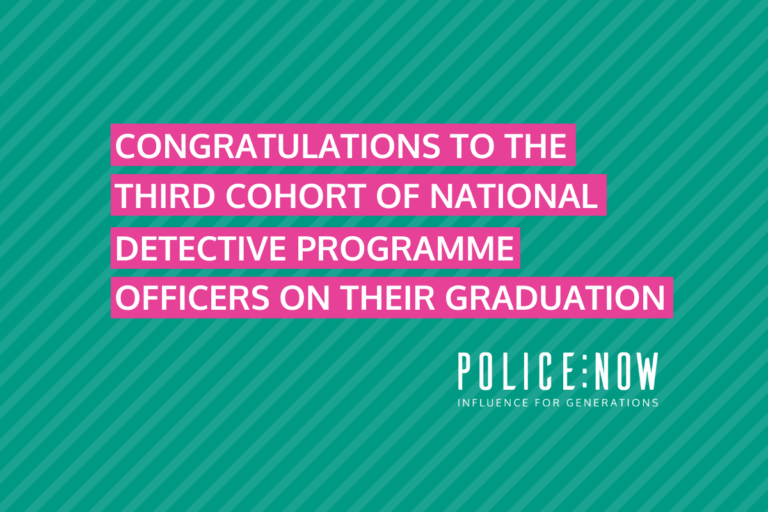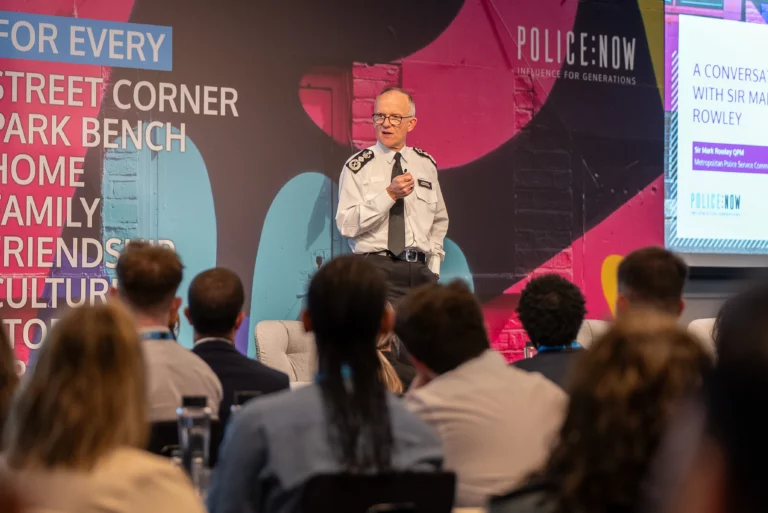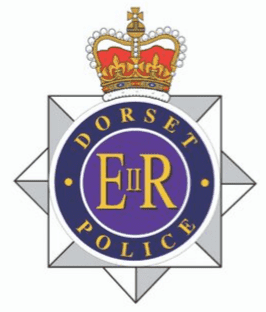Earlier this month Brett Wigdortz, Founder and CEO of Teach First, joined one of our officers, PC Ben Jordan on the beat in Forest Gate, London. In this blog he recounts the experience and reflects on the shared leaderchip qualities of great teachers and great frontline officers.
During the past 14 years of working towards our shared vision, I have been fortunate enough to spend time visiting hundreds of schools in low income communities up and down the country (and many more overseas.) I have chatted with thousands of young people in these communities from four year olds proudly showing me their artwork, to sixth formers explaining their aspirations and dreams. I have visited dozens of wonderful charities and community organisations that are doing brilliant work supporting these children. However, I had never actually visited the homes of the young people we work with and seen first-hand the difficult conditions that some of them may face on a day to day basis.
This changed last Wednesday when I spent nine hours shadowing Teach First ambassador, PC Ben Jordan, who is on the inaugural cohort of our sister organisation Police Now. Police Now was founded by Detective Inspector David Spencer and Detective Chief Inspector Tor Garnett (daughter of Teach First Vice-Patron and former Chair, Dame Julia Cleverdon) last year based on the Teach First model with the mission to “transform communities by recruiting, developing, and inspiring leaders in policing.” The two-year programme trains and places police constables who focus on community policing in low income communities in order to build safer communities. Two Teach First ambassadors, including Ben have joined the first cohort.
I showed up at Forest Gate Police Station at 6:45am to meet Ben. He took me into the morning briefing, where my first impression was how closely it mirrored countless television shows I’ve seen through the years. The sergeant went through some of the suspects at large and incidents which had occurred overnight and then paired the officers together and gave out assignments. Ben and I were matched with another new constable and a more experienced officer who had 14 years on the force. After giving me a stab vest to wear under my jumper, they led me out to the car that we were to ride in. Extraordinarily patient, they went through the kit they carried around – pepper spray, a foldable baton, countless forms to fill out and a shoulder radio. We then spent the morning driving around the area responding to calls – a domestic disturbance in West Ham, an assault in Stratford, and searching for a suspect in another call. In the afternoon, Ben and his colleagues went around Little Illford, his patch, to keep an eye on things. They drove around and then walked through some of the high problem areas. Throughout the afternoon Ben bumped into some of his former pupils and other locals who he had gotten to know. It was obvious that he had a good understanding of the needs and problems of the community to help the residents live more secure lives.
I quickly saw that actually there are huge similarities in the roles of teachers and frontline officers. Both are incredible leadership roles where quick decision making and thoughtful responses are needed constantly. Both require a great deal of empathy, teamwork and intelligence. Both provide huge levels of responsibility at a relatively young age – much more responsibility than most graduate roles in other fields.
“I quickly saw that actually there are huge similarities in the roles of teachers and frontline officers.”
A few things struck me during the day. I was reminded of the lack of security and structure that so many of our students in this area have. One of the most common crimes the constables deal with is domestic abuse. As they went into homes to try to understand and deal with some of the most raw and personal issues imaginable, I thought of how this must affect the young people that we work with who then have to go through a school day pretending like nothing has happened. In the tower blocks we went through, drug taking is a relatively common occurrence in the public areas that our students need to walk through each day. Outside one tower block, next to the small children’s playground, prostitution and other petty crime is often found in the evenings. I saw inside a few homes that were tiny with children sharing rooms with adults and no places for adolescents to enjoy privacy or their own secure space. The most harrowing moment of the day for me was seeing a toddler taken into the police station, who was being brought into care because her mother was addicted to drugs and father had disappeared. The constable told me that there were no nappies or beds in the house and the toddler was malnourished. The toddler’s brother and sister were still in school about to be picked up by social workers rather than allowed to go home. I wondered how much their teachers knew about their home lives and wasn’t sure if emotionally I could deal with such tragedies on a day to day basis.
While these cases are sadly not uncommon, of course not all the pupils we work with will live in such extreme circumstances. Others will be dealing with issues such as caring responsibilities, English as an additional language, or balancing work and study. Whatever the challenge, it is so important that our schools and teachers provide a high level of personal security, support and encouragement, especially to those who may not get it at home.
I also recognise what a huge issue it is for our teachers and their colleagues to keep high expectations for these children while also recognising and appreciating the huge challenges they might face on a day to day level.
Overall, I was hugely impressed with the professionalism of the police. Throughout the day, they were filmed by passer-bys on their smartphones, possibly hoping to catch them out. I could only imagine every minute of my working day being filmed (every meeting?) and how difficult it would be. Safety is one of the building blocks of Maslow’s hierarchy of needs and it is so crucial for all of our young people in order for them to achieve in the way we know is possible. I hope that we at Teach First can build strong links with Police Now and their colleagues and work together to ensure these young people get the opportunities they deserve.
We’d like to thank Teach First for letting us re-publish this blog.






